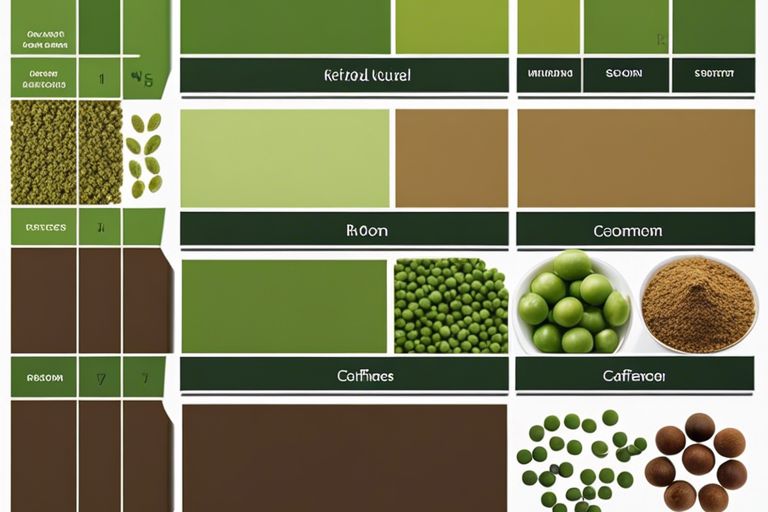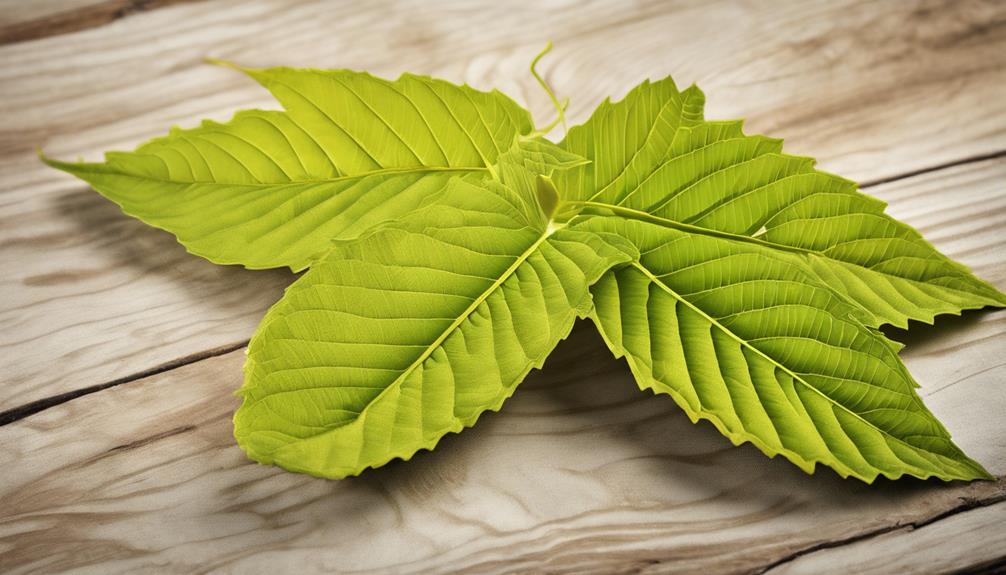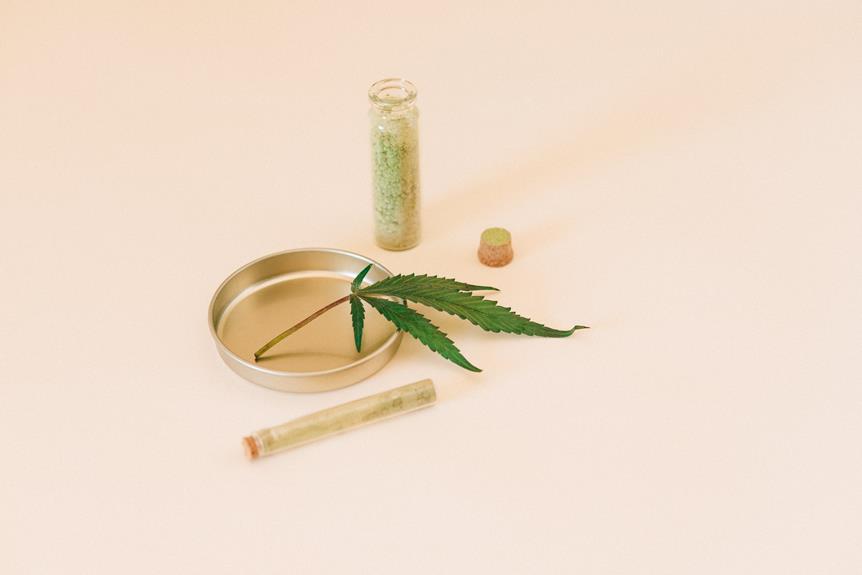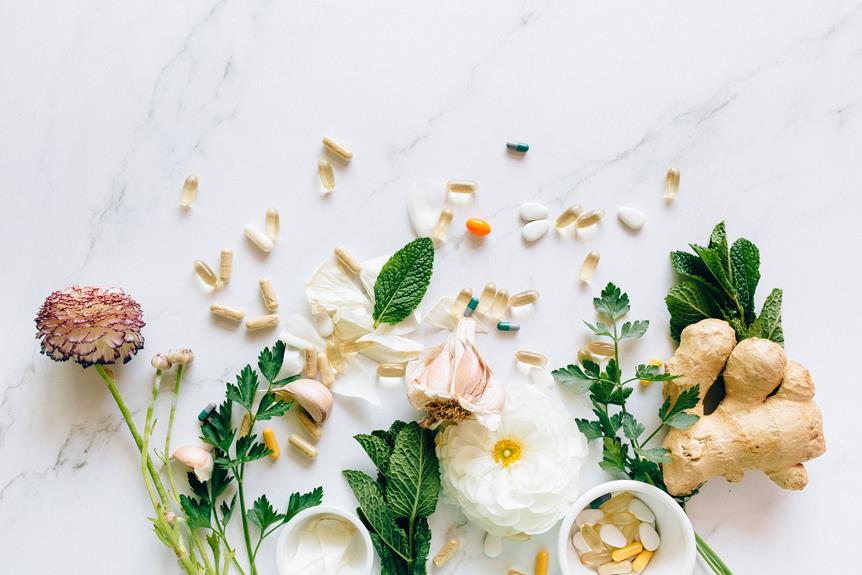Most people enjoy a nice cup of coffee in the morning to kickstart their day, but have you ever wondered if your favorite kratom also contains caffeine? When comparing Kratom vs. Caffeine, it’s vital to understand the differences between the two. Let’s investigate into the depths of this topic to discover whether kratom has caffeine and how it may impact you.
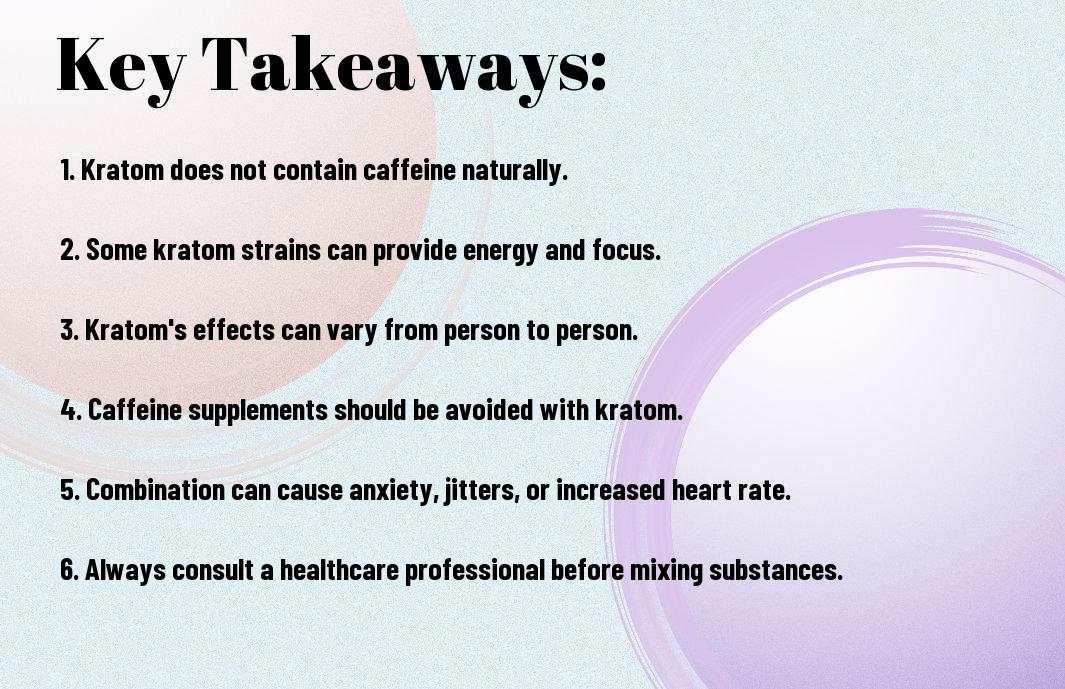
What is Kratom?
Your curiosity about kratom is understandable; it’s a versatile herb with a long history of traditional use. Let’s examine into what kratom is all about, its origins, chemical composition, and more.
Origins and History
The story of kratom stretches back centuries, originating in Southeast Asia where it has been used in traditional medicine and cultural practices. The leaves of the Mitragyna speciosa tree, from which kratom is derived, have been consumed for their stimulating and pain-relieving effects by various indigenous communities in countries like Thailand, Malaysia, and Indonesia.
Chemical Composition
Any discussion about kratom must touch upon its chemical composition. Kratom contains over 40 compounds, with the most notable ones being mitragynine and 7-hydroxymitragynine. These alkaloids interact with the brain’s opioid receptors, leading to the herb’s unique effects.
The diverse alkaloid profile of kratom contributes to its varying strains, each offering a different experience. Understanding the chemistry behind kratom can help you navigate its potential benefits and effects more effectively.
Caffeine: A Quick Primer
What is Caffeine?
Some of you may already be familiar with caffeine, considering it’s one of the most widely consumed psychoactive substances in the world. It is a natural stimulant found in coffee, tea, cocoa, and other plants, known for its ability to temporarily ward off drowsiness and restore alertness.
Effects on the Body
Primer: Caffeine works by blocking the action of adenosine, a neurotransmitter in the brain that promotes sleep. By doing so, it increases the release of other neurotransmitters like norepinephrine and dopamine, leading to enhanced firing of neurons and improved cognitive function.
Effects: Another effect of caffeine is its ability to increase adrenaline levels in your blood. This hormone is responsible for the “fight or flight” response, which can improve physical performance by making your body ready for intense exertion.
The Connection Between Kratom and Caffeine
Despite their differences, kratom and caffeine share some commonalities in how they affect your body and mind.
Similarities in Stimulation
Connection
Both kratom and caffeine are known for their stimulating effects, which can increase energy levels and improve focus. They work by interacting with your brain’s receptors to produce these stimulating effects, giving you a boost in alertness and concentration.
Differences in Mechanism
One
While both kratom and caffeine can provide a sense of stimulation, they work through different mechanisms in your body. Kratom contains alkaloids that interact with opioid receptors in your brain, which can lead to both stimulation and sedation, depending on the dosage and strain. On the other hand, caffeine works by blocking the inhibitory neurotransmitter adenosine, which helps increase alertness and reduce fatigue.
A
These differences in how kratom and caffeine interact with your brain’s receptors contribute to their distinct effects and potential side effects. Understanding these variations can help you make informed choices about using kratom, caffeine, or both substances.
Does Kratom Contain Caffeine?
Alkaloid Profile
To answer the question of whether kratom contains caffeine, you need to understand the alkaloid profile of this botanical substance. Kratom, scientifically known as Mitragyna speciosa, contains over 40 different alkaloids. Some of the primary alkaloids found in kratom include mitragynine and 7-hydroxymitragynine. These alkaloids are responsible for the various effects that kratom produces when consumed.
Caffeine Content in Kratom Strains
For a more in-depth look at whether kratom contains caffeine, it’s necessary to consider the specific strains of kratom available. While kratom itself does not naturally contain caffeine, certain kratom strains may be blended with other substances containing caffeine. For example, some kratom products sold as energy-boosting blends may include ingredients like caffeine or yerba mate to enhance their stimulating effects.
Caffeine may be added to kratom products to create a more energetic experience for users seeking a pick-me-up. However, it’s crucial to read product labels carefully if you’re concerned about the caffeine content in your kratom. Understanding the ingredients in your kratom strain can help you make informed decisions about your consumption and better tailor your kratom experience to suit your preferences.
How Kratom Affects Energy and Alertness
Not only is kratom a complex plant that interacts with various receptors in your brain, but it also affects your energy levels and alertness in unique ways. While some users report feeling a boost in energy and increased alertness after taking kratom, others may experience sedative effects that promote relaxation and calmness.
Stimulation vs. Sedation
An important factor to consider when using kratom is the strain and dosage you choose. Certain strains, like Maeng Da, are known for their stimulating effects, providing you with an energy boost and heightened alertness. On the other hand, strains like Red Bali are more sedating and can help you relax and unwind after a long day. Finding the right balance between stimulation and sedation is key to maximizing the benefits of kratom for your energy levels.
User Experiences and Reviews
For many users, kratom has become a preferred natural alternative for managing energy levels and promoting alertness. Some users report that kratom helps them stay focused and productive throughout the day, while others praise its ability to provide a sense of calm and relaxation without feeling drowsy. However, individual experiences with kratom can vary, so it’s vital to start with a low dose and gradually increase until you find the right balance for your needs.
Plus, reading reviews and testimonials from other kratom users can offer valuable insights into how this herbal supplement may affect your energy and alertness. Keep in mind that everyone’s body reacts differently to kratom, so it’s vital to pay attention to how you feel and adjust your dosage accordingly to achieve the desired effects.
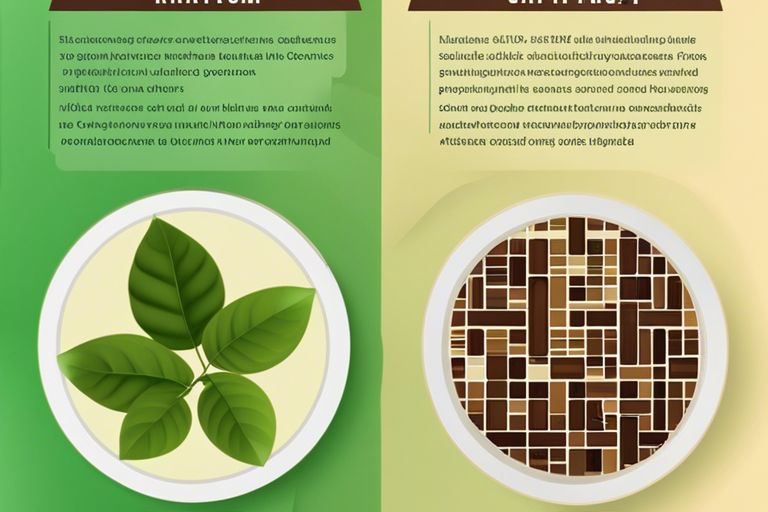
Comparing Kratom to Caffeine-Based Stimulants
Many people often wonder how kratom compares to other caffeine-based stimulants. Here, we’ll explore into a comparison of kratom with energy drinks, supplements, and prescription medications to understand their differences and similarities.
Energy Drinks and Supplements
Energy Drinks and Supplements
Any comparison between kratom and energy drinks/supplements must consider their effects on your body. While both kratom and these stimulants can provide an energy boost, kratom’s effects are more nuanced. Energy drinks and supplements typically contain caffeine and other additives to enhance alertness, whereas kratom’s stimulating effects come from its alkaloids, particularly mitragynine and 7-hydroxymitragynine.
Prescription Medications
Any discussion on kratom versus prescription medications revolves around their classification and potential side effects on your body. Prescription medications are tightly regulated and prescribed by healthcare professionals for specific conditions, while kratom is considered a herbal supplement in many places.
Any potential interaction between kratom and prescription medications should be approached with caution. Medications like stimulants or antidepressants may have conflicting effects when combined with kratom. It’s imperative to consult with your healthcare provider before mixing kratom with any prescription medication to avoid adverse reactions.
Overall, comparing kratom to caffeine-based stimulants such as energy drinks, supplements, and prescription medications highlights the different mechanisms of action and potential risks associated with each. Understanding how these substances interact with your body can help you make informed decisions about their consumption and potential impacts on your health.
To wrap up
Following this exploration of whether kratom contains caffeine, you now understand that kratom does not naturally contain caffeine. It is a unique plant that has its own set of active compounds, such as mitragynine and 7-hydroxymitragynine, which are responsible for its effects. While kratom may not have caffeine, it can still provide a boost of energy and focus, making it a popular choice for those seeking a natural alternative to traditional stimulants.
Q: Does kratom have caffeine?
A: Kratom does not naturally contain caffeine. It contains alkaloids like mitragynine and 7-hydroxymitragynine which impact the body differently than caffeine.
Q: How does kratom affect energy levels compared to caffeine?
A: While caffeine is a stimulant that directly increases alertness and energy levels, kratom has a more complex mechanism of action that can vary depending on the strain and dosage.
Q: Can kratom be used as a substitute for caffeine?
A: Some individuals may use kratom as a substitute for caffeine to help with focus and energy, but it’s important to understand the potential side effects and addictive nature of kratom.
Q: Are there risks associated with consuming kratom and caffeine together?
A: Combining kratom and caffeine can potentially lead to overstimulation, increased heart rate, and other adverse effects. It’s advisable to be cautious when combining substances.
Q: What are the common side effects of kratom compared to caffeine?
A: Common side effects of kratom can include nausea, dizziness, constipation, and fatigue, while caffeine side effects may include jitteriness, insomnia, and increased heart rate.
Q: Can kratom help with focus like caffeine does?
A: Some users report that certain strains of kratom can help improve focus and concentration, similar to the effects of caffeine, but individual responses may vary.
Q: Is kratom legal and safe to use in combination with caffeine?
A: Kratom’s legality and safety are subject to varying regulations in different regions. Consult with a healthcare provider before using kratom in combination with caffeine, especially if you have underlying medical conditions or take medications.
